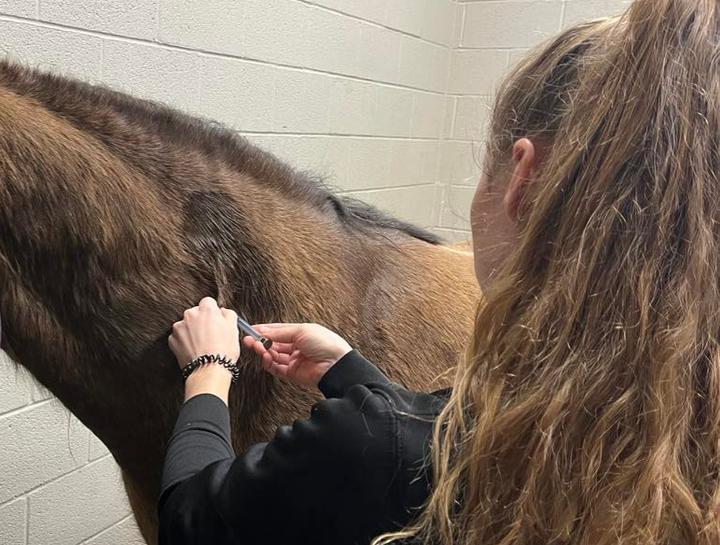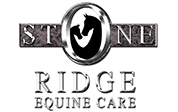Equine Vaccinations

There are two main types of Equine Encephalomyelitis that we vaccinate for, Eastern (EEE) and Western (WEE). Mosquitoes are the vector that spreads this disease to horses. Once infected the virus likes to attack the central nervous system and can cause a variety of symptoms. Some of these signs/symptoms are: vision issues, aimless wandering, head pressing, circling, continuous swallowing, abnormal gait, weakness, paralysis and convulsions. This virus will sometimes cause a fever. Most affected horses die within a week of infection.
Rabies, as many know, is spread through a bite and saliva from a rabid animal entering a wound. Signs of rabies are mania, distress or agitation, self-trauma, paralysis of the jaw and throat, and drooling. Since Rabies is a zoonotic disease, if your horse is infected, you are then also at risk of contracting the virus. For this reason, it is important to wear gloves when dealing with any neurologic animal.
Tetanus is a type of clostridium bacteria that often enters the blood stream through a cut or wound. As we all know horses would injure themselves if they were in a padded room, so it’s not IF your horse is injured, it’s WHEN, they will be at risk. Symptoms of tetanus include a stiff tail, stiff ears, nostrils open, 3rd eyelid elevated, difficulty walking, stiff legs, and sweating. Tetanus is often fatal to a horse, especially if not treated at the early onset of symptoms.
West Nile virus is another one that the mosquito is the vector. There are enough mosquitoes in this area to be considered the state bird, so prevention is key. Just like Equine Encephalomyelitis, West Nile virus attacks the central nervous system. Early on, these horses will twitch at the muzzle, often are uncoordinated, have muscle contractions, and are sensitive to the touch. This, and all the symptoms listed with Equine Encephalomyelitis, are possible symptoms of West Nile virus. West Nile can be fatal and requires intensive care and support.
There are several types of Equine Herpesvirus but 1 (EHV-1) & 4 (EHV-4) are what we vaccinate for most often. EHV-1 can cause neurologic symptoms, respiratory symptoms, abortion, and neonatal death. EHV-4 causes upper respiratory issues in foals. Symptoms to watch for are incoordination, hindlimb weakness, loss of tail tone, lethargy, dribbling urine, head tilt, leaning, and unable to rise. This virus can be transmitted by us and by our equipment, buckets, and trailers. Proper sanitation and quarantine are important to help prevent this spread. If your horse’s exposure and risk are high (traveling/shows/boarding) we may recommend a 6-month booster for these viruses.
With all vaccines none are 100% effective; however, without vaccinations the survival rate from these viruses is extremely low. Help us protect your horses and vaccinate them for these CORE diseases.
Article Written by: Dr. Danielle Linne
Sources - USDA and AAEP
